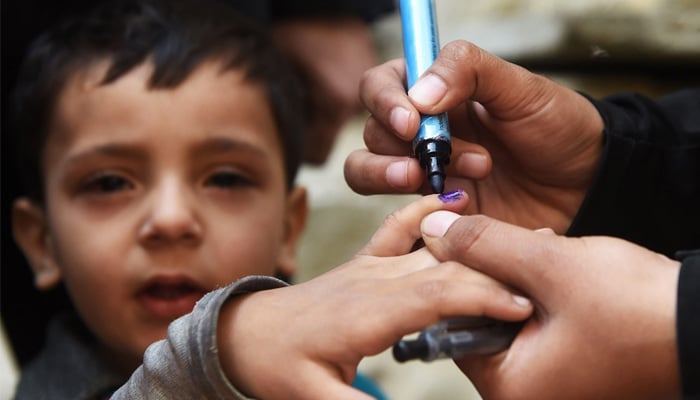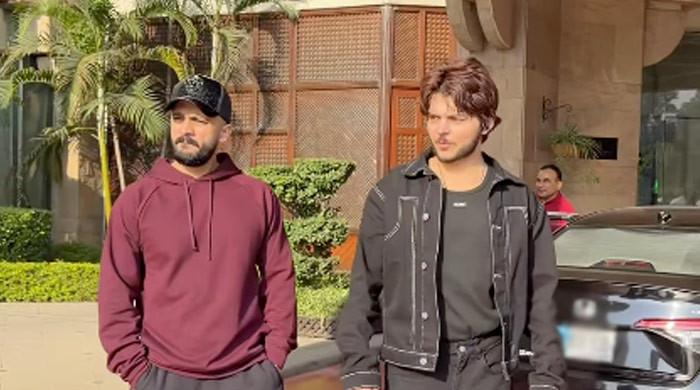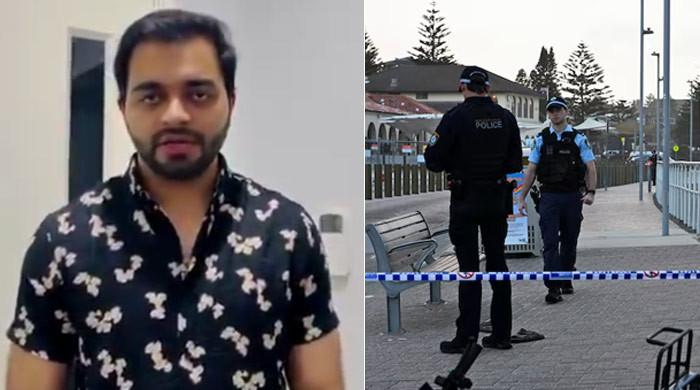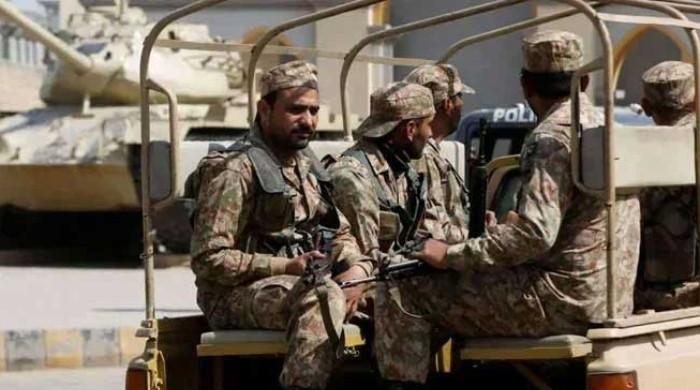Polio cripples three-year-old in Bannu
Pakistan National Polio Laboratory at NIH confirms child's paralysis by wild polio virus
August 02, 2023

- The child's paralysis began on July 11.
- Case second this year from Bannu.
- Wild polio transmission endemic in 7 KP districts.
ISLAMABAD: Wild poliovirus once again took a toll, crippling a three-year-old boy for life in Bannu as the government struggles to sweep the virus out of the country, The News reported.
The polio virus, which invades the nervous system and can cause irreversible paralysis within hours, spreads rapidly among children, especially in unsanitary conditions and areas where health care is limited.
As per the report, the child's paralysis began on July 11 and the case was officially confirmed by the Pakistan National Polio Laboratory at the National Institute of Health in Islamabad on Tuesday, August 1.
This is the second polio case reported by Bannu this year.
"The child affected by the disease will have to live with disabilities for the rest of his life due to an entirely preventable disease, which is truly tragic," Federal Health Minister Abdul Qadir Patel said while expressing concern over the situation.
Despite the fact that Pakistan is among the only two countries which have not yet achieved polio eradication, the minister said that the country has made "significant progress in combating polio", especially after the outbreak in North Waziristan last April.
"However, even one affected child is too many, and every child deserves a life free from this incurable disease," he added.
It may be noted that no child has been paralysed by polio in Pakistan since 2021, despite periodic detection of the virus in sewage samples, except for seven districts of southern Khyber Pakhtunkhwa (KP) where the wild polio transmission remains endemic.
These districts include North Waziristan, South Waziristan Upper, South Waziristan Lower, DI Khan, Bannu, Tank, and Lakki Marwat.
Meanwhile, the tribal areas of both KP and Balochistan have faced resistance against the government-led polio eradication campaigns.
The disease can only be prevented with vaccination, but efforts to eradicate it in Pakistan have been undermined by opposition from some conservative locals and extremists, who claim immunisation is a foreign ploy to sterilise Muslim children or a cover for Western spies.
The teams participating in the anti-polio virus vaccination drives have also suffered countless attacks resulting in the deaths of policemen and polio workers, to discourage the efforts for getting rid of the incurable disease.
The latest attack was on Tuesday when two cops guarding a team vaccinating children in a suburban area of Quetta were shot dead during the ongoing immunisation drive in Balochistan.
Federal Health Secretary Iftikhar Shallwani stressed that parents need to realise that refusing vaccination exposes their children to lifelong disabilities, and the consequences of vaccine refusal are substantial.
Dr Shahzad Baig, the Coordinator for the National Emergency Operations Centre, announced that a vaccination campaign will begin in Khyber Pakhtunkhwa next week and urged parents to ensure their children receive the vaccination.
Despite facing challenges, Dr Baig affirmed their commitment to the mission of interrupting wild polio transmission.
In 2022, 20 children were affected by polio, with 17 cases reported in North Waziristan, two in Lakki Marwat, and one in South Waziristan.









